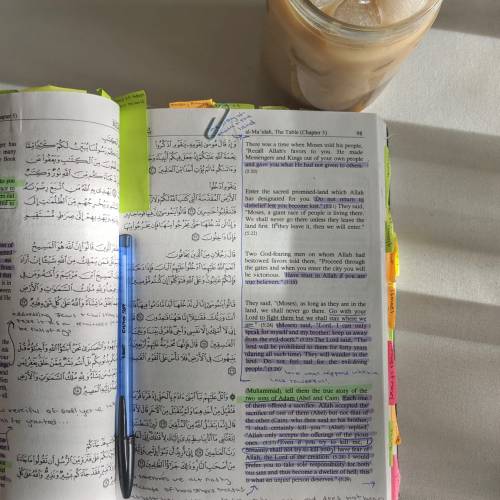
5 Ways to Elevate Your Daily Prayers
15 May 2020As we enter the final 10 nights of the blessed month of Ramadan, it is now a chance for us to reflect on what we have done to take advantage of this holy month. What negative habits have we overcome? Which good habits have we incorporated? Which weaknesses have we sought to strengthen? And how have we enhanced the quality of our spiritual practices? One crucial area of our faith which we must pay attention to is our daily prayers. While we all yearn for the spiritual upliftment that Ramadan brings once it has passed, the daily obligatory prayers are our chance to maintain that spirit throughout the rest of our year, every single day.
So what are some ways we can do this?
1. Make wudhu (ablution) mindfully
Washing ourselves before we pray is a blessing that we usually overlook because we are often rushing to get to prayer on time. Instead, we should see it as the means through which our prayer can be performed with complete focus. There are special supplications a person can read before and after making wudhu. However, most of us probably haven’t memorised these supplications. Or sometimes when we recite the supplication, we may not be mindful of what we are saying. So what do we do?
An effective way to be mindful during wudhu is to think of the sins we have committed with each of the parts of our body as we wash them. Imagine that the water is cleaning them as they are a hindrance to the prayer we are about to perform. It can be a moment of reflection of the Hereafter, or a moment of asking for forgiveness from Allah (swt). The goal is to think about how our deeds are hindering us from the pure prayer that God has the right to receive from us. We can ask Him in our hearts and minds to purify our prayers… all at the time of wudhu!
2. Speak to God on the way to prayer
Besides speaking to Him during wudhu, we can also make it a habit to speak to Him until the moment we begin prayer. If we’re on the way to the mosque for prayers, speak to Him during the drive there. If our thoughts take us elsewhere, we may gently remind ourselves where we’re headed (both physically and spiritually). If we’re praying just in the other room, speak to Him on the few steps it takes to get there and think of the infinite reward of each step. Ask Him for a pure prayer. A focused prayer. One that is truly in awe of Him. If we have a minute before prayer begins, we can sit on the prayer mat silently seeking Him with a true conscious and present state. Before speaking to Him in our prayer, we can speak to Him in what comes most naturally for us. If it’s your mother tongue, speak to Him in your mother tongue. It should be a moment of pause to collect ourselves and get ready for our meeting with Him.
3. Pray exactly on time
The prayer timings are the divinely appointed times to worship our Lord. Some of us may find it easier to pray exactly on time, but for most of us, we have trouble. We don’t usually know why we’re putting it off, but we do it until the last possible moment. Why? Reflecting on the answer to this question can give us an insight into our own weaknesses and help us come to a solution.
Generally, besides reminding ourselves of the added rewards reserved for praying at the beginning of the prayer time slot, the discipline that comes with praying on time can spill into other areas of our life, where we often fall short in our will-power. It can help us overcome procrastination in our work or study.
Some practical steps we can implement would be to check the prayer times for the next day before sleeping so we have an idea of how to structure our time. If morning prayer is at 04:40am, then we know to wake up at least 15 minutes prior to prepare. Make affirmations! We can write the times down, or say aloud to ourselves “I will pray on time today.” If we practice this vigilantly, then it’ll soon become painful to not pray on time.
4. Spend some extra time in sujood (prostration)
The Prophet (pbuh) said, “If you want Allah to raise you [on the Day of Resurrection] with me, then prolong your prostration to Allah the One, the all-Conquerer.” [Bihar al-Anwar, p. 164, no. 12]
In heeding the Prophet’s advice, most of us are accustomed to prolonging our prostration (sujood) in the last cycle of our prayers before finishing. But we can do the same for the rest of the prayer. If we’re praying a 4 cycle prayer as we do in the afternoon prayers (dhuhr and asr), there are 8 opportunities to prolong our sujood. We don’t have to say anything other than “Subhanallah” 3 times. But taking an extra moment to pause and allow our hearts to bow before our Lord in prostration can make all the difference.
5. Think of the Hereafter as you pray
The Hereafter is something we should remember before intending to do any action. But in our prayers, it is especially important. Trying to remember the Hereafter can be difficult especially for those of us who don’t know the translation of the words we read. In that case, we must try familiarizing ourselves with the meaning of what we are saying. When we say “Malik yawm ad-Din” or “Master of the Day of Retribution” we can think of that Day and what it will mean to meet Him. Or when we send our salams to the Holy Prophet, we’ll think perhaps of the greetings in Heaven that the Quran mentions in various places (see for example Ar-Ra’d, verse 24). Maybe we can think of how this one prayer with full concentration can be our means to entering the gates.
We are not even guaranteed to finish a prayer that we have started. We should therefore make sure we are mindful of our attention right now. We mustn’t allow our minds to finish wandering during qiyam (standing position of prayer) because we’ve concvined ourselves that “my Ruku (bowing) will be different”. It is not guaranteed you will make it that far.
May these final nights of the Holy month of Ramadan be spiritually fulfilling, and a chance to elevate our prayers to a level above, which we can maintain through the rest of the year.















